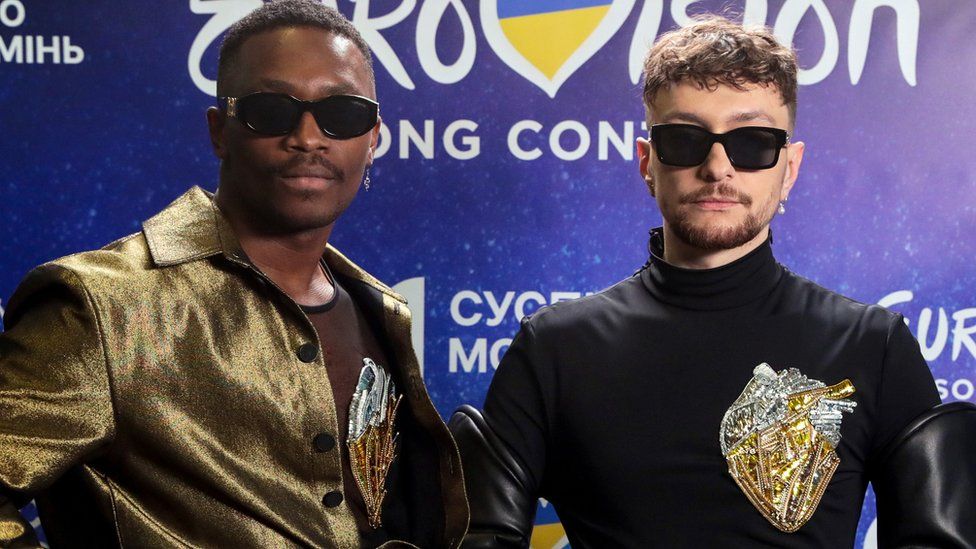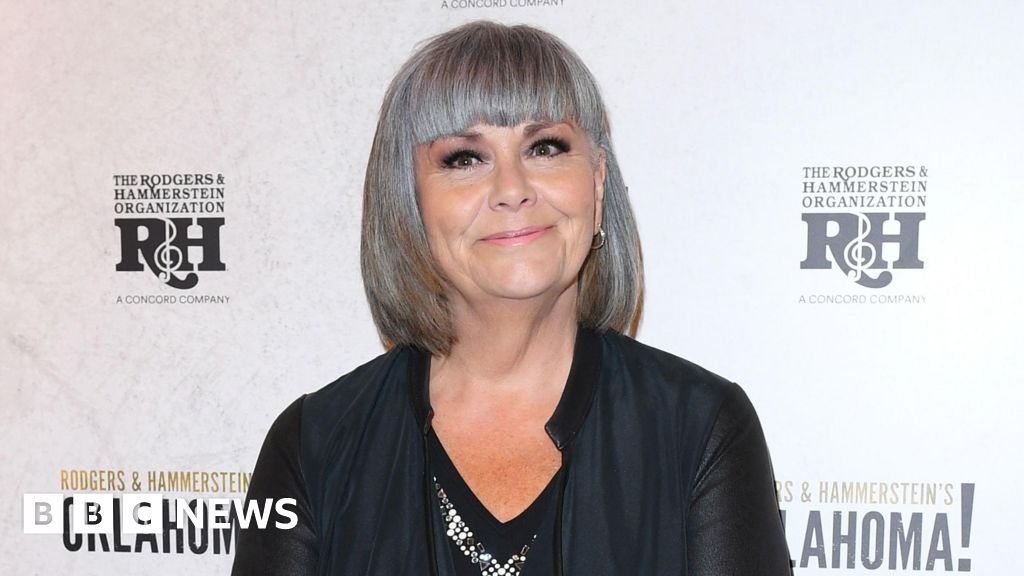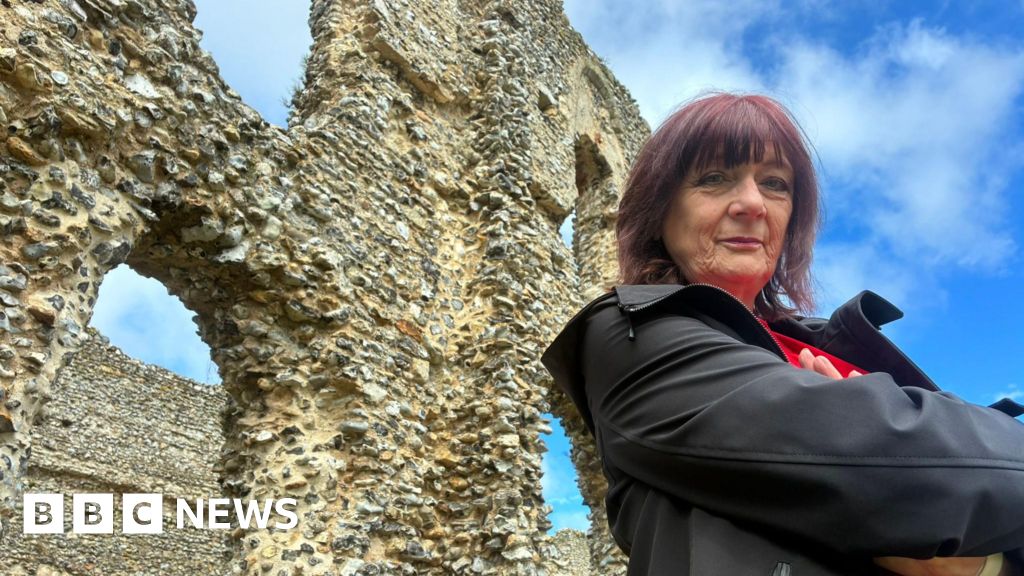ARTICLE AD BOX
 Image source, Getty Images
Image source, Getty Images
Tvorchi will represent Ukraine when Eurovision heads to Merseyside in May
By Daniel Rosney
Eurovision reporter
This year's Eurovision Song Contest in Liverpool will have the slogan "United in Music", with its artwork showing hearts beating together.
The BBC said it "reflects the very origins of the contest", which was originally created as a broadcasting experiment to bring Europe together.
This year's event will be held in the UK because it is too dangerous to stage it in Ukraine, which won in 2022.
Both country's flags have been used as inspiration for the colour scheme.
The typeface used in the Eurovision logo is called Penny Lane - a nod to Liverpool's rich musical heritage
An official handover ceremony, hosted by Rylan Clark and AJ Odudu, will be broadcast from Liverpool's St George's Hall at 19:00 GMT on Tuesday on BBC Two.
Most participating countries will also find out which semi-final they will compete in. Local school pupils, as well as members of the Ukrainian community who have settled in Liverpool since the war began, will be involved in the allocation draw.
The semi-finals on 9 and 11 May will see 31 competitors whittled down to 20 acts by the public - in a change to the rules - ahead of the grand final on 13 May.
WATCH: Eurovision reporter Daniel Rosney gives the rundown on the 2023 contest in 50 seconds
The UK, France, Spain, Germany and Italy automatically qualify for the final because of how much their broadcasters pay to take part. Ukraine will also go straight to the final as 2022 winners.
The previous year's victors normally stage the next event. The UK came second thanks to Sam Ryder in 2022, and says Liverpool will host this year's show on behalf of Ukraine.
Image source, EBU / CORINNE CUMMING
Image caption,The previous year's More than 160 million people watched Kalush Orchestra win for Ukraine in 2022
As part of Tuesday's draw, the mayor of last year's host city, Turin, will hand over "the keys" to Eurovision as well as the official insignia for the competition.
Who pays for Eurovision?
Liverpool City Council and the Liverpool City Region Combined Authority will pay around £4m between them towards putting on events outside the arena.
There will be events across Liverpool - including a fan park with big screens for those unable to get tickets to the nine shows (including rehearsal performances) during Eurovision week.
The main bulk of the budget for the world's most-watched live music event will fall to the BBC as host broadcaster - an estimated cost of between £8m and £17m.
Culture Secretary Michelle Donelan has also confirmed that the UK government will contribute, but has not said how much.
The competing countries - through their national broadcasters - also pay an entry fee.
Image source, Ant Clausen
Image caption,Liverpool's arena and exhibition centre on the banks of the River Mersey will play host to Eurovision
Revealing the logo, Martin Green, managing director of the event for the BBC, said: "This year's identity sums up perfectly the amazing partnerships across the contest and, more importantly, the power of music to bring people together across the world."
All the build-up, insights and analysis will be explored each week on a new BBC podcast called Eurovisioncast.
Eurovisioncast will launch on BBC Sounds on Tuesday, or search wherever you get your podcasts from.

 2 years ago
63
2 years ago
63








 English (US) ·
English (US) ·